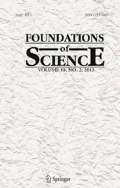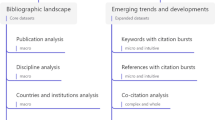Abstracts
Building models as a practical aspect of ecological theory has as a principal purpose the determination of relations in formal (mathematical) language. In this paper, the authors provide a formalization of ecological models based on impure systems theory. Impure systems contain objects and subjects: subjects are human beings. We can distinguish a person as an observer (subjectively outside the system) that by definition is the subject himself and part of the system. In this case he acquires the category of object. Objects (relative beings) are significances, which are the consequence of perceptual beliefs on the part of the subject about material or energetic objects (absolute beings) with certain characteristics. The impure system approach is as follows: objects are perceptual significances (relative beings) of material or energetic objects (absolute beings). The set of these objects will form an impure set of the first order. The existing relations between these relative objects will be of two classes: transactions of matter and/or energy and inferential relations. Transactions can have alethic modality: necessity, possibility, impossibility and contingency. In this work we define measures which let us choose the more suitable variables to relate both the model with the ecosystem and with different models. In this way we define different comparison indexes.
Similar content being viewed by others
Notes
Semiotics is the theory and study of signs and symbols.
See more details on the paper: “Conclusive reasons that we perceive sets (MacCallum 2000)”.
The Quine–Putnam mathematical indispensability argument asserts that mathematical entities are on a par with other scientific entities from our best scientific theories. This argument is an argument for mathematical realism. Mathematical entities exist because they are indispensable in our best scientific theories.
Let Ω be an open connected space in the complex plane (Markushevich 1978): we will call H Ω the set of all analytical functions over Ω which have a ring structure with the operations of addition and product. For F \(\subset\) H Ω, A(F) will denote the subring generated by F and \(A*(f)\) will be the set of analytical functions which depend algebraically on some subset of F.
-
1.
\(A*(f)\) ⊂ E
-
2.
If f ∈ E then \(f^{{\prime }}\), Ef, Pf Lf ∈ E being \(f^{{\prime }}\) the derivative, Ef the exponential of f, Pf a primitive and Lf the logarithm of f.
-
3.
If f, g ∈ E, then f + g, f/g, (g ≠ 0), fg [that is exp(glog f)], are elements of E.
-
4.
If f, g ∈ E y f(Ω) ⊂ Ω then \(g \circ f\) ∈ E.
Given F \(\subset\) H Ω any function like the following one: f 1 o f 2 o…o fn with fi \(\in\) F, \(\forall\) i = 1,2,…,n we will call a transformed function (Usó-Domènech et al. 1997) of order n.
-
1.
References
Beaugrande, R. A., & Dressler, W. U. (1997). Einführung in die Textlinguistik. (Spanish Trad., Introducción a la lingüística del texto). Barcelona: Ariel.
Benacerraf, P. (1973). Mathematical truth. Journal of Philosophy, 19, 661–679.
Cale, W. G., Jr., & Odell, P. L. (1979). Concerning aggregation in ecosystems modelling. In E. Halfon (Ed.), Theoretical systems ecology. Advances and case studies. Cambridge: Academic Press.
Chandler, D. (2004). Semiotics. The basis. London: Routledge.
Colgate, S. A., & Ziock, H. (2011). A definition of information, the arrow of information, and its relationship to life. Complexity, 16(5), 54–62.
Eco, U. (1976). El signo. Barcelona: Editorial Labor (in Spanish).
Febres, G., Jaffé, K., & Gershenson, C. (2015). Complexity measurement of natural and artificial languages. Complexity, 20(6), 25–48.
Field, H. (1980). Science without numbers: A defense of nomilanism. Pricenton: Princeton University Press.
Field, H. (1989). Realism, mathematics and modality. Oxford: Basil Blackwell.
Gell-Mann, M., & Lloyd, S. (1996). Information measures, effective complexity, and total information. Complexity, 2(1), 44–52.
Gershenson, C. (2001). Comments to neutrosophy. In Proceedings of the first international conference on neutrosophy, neutrosophic logic, set, probability and statistics, University of New Mexico, Gallup, December 1–3, 2001.
Gershenson, C., & Fernández, N. (2012). Complexity and information: Measuring emergence, self-organization, and homeostasis at multiple scales. Complexity, 18(2), 29–44.
Hempel, C.G. (1945). On the nature of mathematical truth. American Mathematical Monthly 52. Reprinted in H. Feigl, & W. Sellars (eds.) Readings in philosophical analysis. New York: Appleton-Century-Crofts, 1949. Reprinted in J. R. Newman (ed.) The world of mathematics, vol. III. New York: Simon and Shuster, 1956. Transcribed into hypertext by Andrew Chrucky, Feb. 4, 2001.
Higashi, M., & Burns, T. P. (1991). Enrichment of ecosystem theory. In Theorical studies of ecosystems. Cambridge, NY: Cambridge University Press.
Jorgënsen, S. E. (1988). Fundamentals of ecological modelling. Amsterdam: Elsevier.
Kun, W., & Brenner, J. E. (2015). An informational ontology and epistemology of cognition. Foundations of Science, 20(3), 249–279.
Lincoln, R. J., Boxshall, G. A., & Clark, P. F. (1982). A dictionary of ecology, evolution and systematics. Cambridge, NY: Cambridge University Press.
Lloret, M., Villacampa, Y., & Usó, J. L. (1998). System-linkage: Structural functions and hierarchies. Cybernetics and Systems, 29, 29–39.
Locker, M. (2016). Blindness and seeing in systems epistemology: Alfred locker’s trans-classical systems theory. Foundations of Science. doi:10.1007/s10699-016-9502-y.
Lombardi, O. (2004). What is information? Foundations of Science, 9(2), 105–134.
MacCallum, D. (2000). Conclusive reasons that we perceive sets. International Studies in the Philosophy of Science., 14(1), 26–42.
Maddy, P. (1990). Realism in mathematics. Oxford: Clarendon Press.
Maddy, P. (1996). Set theoretic naturalism. Journal of Symbolic Logic, 61, 490–514.
Margalef, R. (1995). Ecología. Barcelona: Omega (in Spanish).
Markushevich, A. (1978). Teoría de las funciones Analíticas (Vol. I). Moscow: Editorial Mir (in Spanish, translated from Russian).
Nescolarde-Selva, J., & Usó-Domènech, J. L. (2014a). Semiotic vision of ideologies. Foundations of Science, 19(3), 263–282.
Nescolarde-Selva, J., & Usó-Domènech, J. L. (2014b). Reality, systems and impure systems. Foundations of Science, 19(3), 289–306.
Nescolarde-Selva, J., Usó-Doménech, J. L., & Gash, H. (2015a). A logic-mathematical point of view of the truth: Reality, perception, language. Complexity, 20(4), 58–67.
Nescolarde-Selva, J., Usó-Doménech, J. L., Lloret- Climent, M., & González-Franco, L. (2015b). Chebanov law and Vakar formula in mathematical models of complex systems. Ecological Complexity, 21, 27–33.
Nescolarde-Selva, J., Usó-Doménech, J. L., & Sabán, M. J. (2015c). Linguistic knowledge of reality: A metaphysical impossibility? Foundations of Science, 20(1), 27–58.
Nescolarde-Selva, J., Vives-Macía, F., Usó-Doménech, J. L., & Berend, D. (2012a). An introduction to alysidal algebra (I). Kybernetes, 41(1/2), 21–34.
Nescolarde-Selva, J., Vives-Macía, F., Usó-Domènech, J. L., & Berend, D. (2012b). An introduction to alysidal algebra (II). Kybernetes, 41(5/6), 780–793.
Peirce, C. S. (1931–1958). In C. Hartshorne, P. Weiss, & A. W. Burks (Eds.) Collected papers of charles sanders peirce (vol. 1–8). Cambridge, MA: Cambridge University Press.
Quine, W. V. O. (1969). Epistemology naturalized. In Ontological relativity. New York: Columbia University Press.
Usó-Domènech, J. L., Mateu, J., & Lopez, J. A. (1997). Mathematical and statistical formulation of an ecological model with applications. Ecological Modelling, 101, 27–40.
Usó-Doménech, J. L., & Nescolarde-Selva, J. (2012). Mathematic and semiotic theory of ideological systems. Sarrebruck: Editorial LAP.
Usó-Doménech, J. L., Nescolarde-Selva, J. A., & Lloret-Climent, M. (2016a). Complex impure systems: Sheaves, freeways, and chains. Complexity, 21(S1), 387–400.
Usó-Doménech, J. L., Nescolarde-Selva, J. A., Lloret-Climent, M., & Gash, H. (2016b). Semantics of language for ecosystems modelling: A model case. Ecological Modelling, 328, 85–94.
Usó-Domènech, J. L., Villacampa, Y., Mateu, J., & Sastre-Vazquez, P. (2000). Uncertainty and complementary principles in flow equations of ecological models. Cybernetics and Systems, 31(2), 137–160.
Villacampa, Y., Usó-Domènech, J. L., Mateu, J., & Sastre, P. (1999). Generative and recognoscitive grammars in ecological models. Ecological Modelling, 117, 315–332.
Yang, Z. B. (1989). A new model of general systems theory. Cybernetic and Systems, 20, 67–76.
Author information
Authors and Affiliations
Corresponding author
Rights and permissions
About this article
Cite this article
Usó-Doménech, JL., Nescolarde-Selva, JA. & Lloret-Climent, M. Impure Systems and Ecological Models (I): Axiomatization. Found Sci 23, 297–321 (2018). https://doi.org/10.1007/s10699-017-9522-2
Published:
Issue Date:
DOI: https://doi.org/10.1007/s10699-017-9522-2




